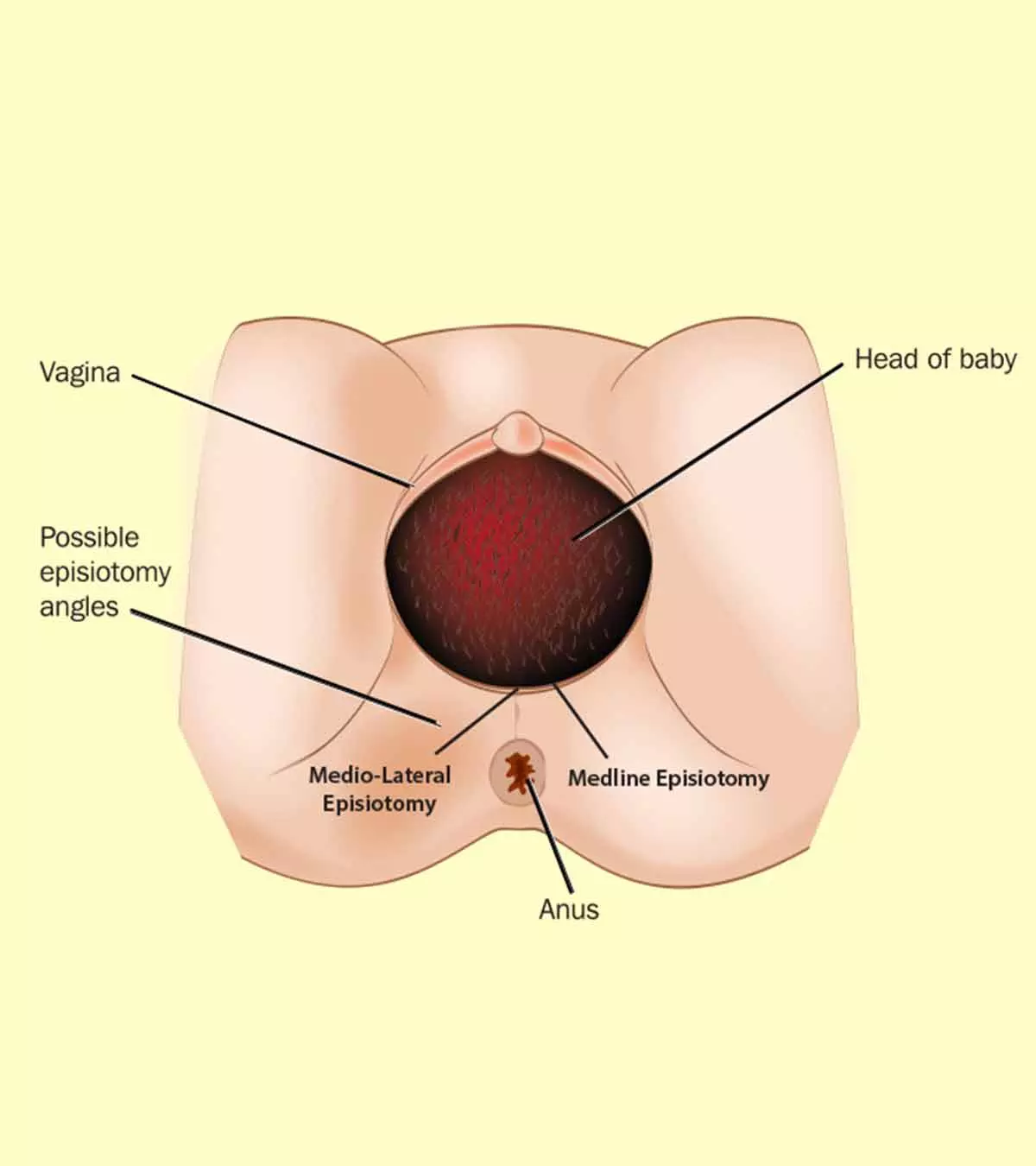

Image: Shutterstock
Pregnant women have low immunity and are prone to several infections. TORCH infections during pregnancy are congenital infections that pass from the mother to the baby. They may give rise to different symptoms in the baby.
If your doctor suspects you have this infection, they may advise you to get some diagnostic tests. Then, they may suggest treatment options based on the severity of the problem and the pregnancy stage. Regular checkups and timely treatment are necessary to deal with TORCH infection.
Read this post to know what TORCH infection is, its symptoms, diagnosis, and treatment options.
What Is TORCH Infection?
TORCH is an acronym for a cluster of congenital infections that the baby acquires from the mother. The infections pass from the mother to the baby, while the baby is still in the uterus or during the childbirth process. Although the condition is rare, TORCH poses more risk to the fetus than to the mother. The risk is higher if the fetus acquires the infection early on during pregnancy (1).
TORCH stands for:
- Toxoplasmosis
- Others (Syphilis, Parvovirus B19, Hepatitis B, Varicella-Zoster virus infection)
- Rubella
- Cytomegalovirus
- Herpes
The cause for each of these infections may vary, but their symptoms could be similar. The baby may not show the symptoms of the infections immediately after birth but may develop after some years (2). Also, most of the time, pregnant women may not experience any symptoms. Even if they do appear, women may not recognize or relate them to these infections.
Continue reading the post to know briefly about each infection.
1. Toxoplasmosis
This infection is caused by the protozoan parasite named Toxoplasma Gondii, which enters the pregnant woman’s body via the mouth (raw or uncooked meat) or by exposure to cat litter. The infection is then passed on to the fetus, who can be at risk of serious health concerns (3).
However, in the majority of cases, babies infected with toxoplasmosis don’t experience immediate symptoms. Signs and symptoms start to appear as the babies grow.
Although toxoplasmosis is a rare condition, maintaining proper hygiene and going for regular checkups during pregnancy helps diagnose and treat the condition in time.
2. Other Infections
a. Syphilis
It is a sexually transmitted infection caused by Spirochete Treponema Pallidum. When a pregnant woman is infected with syphilis, it could be passed to the fetus. Practising safe sex can prevent the infection. The risk of the infection to the fetus is more when it is transmitted in the initial stages of pregnancy (4).
b. Parvovirus B19
It is also called the fifth disease or erythema infectiosum. Only 1 to 2% of pregnant women are affected by this infection, which is transmitted either through contaminated blood or air (5).
c. Hepatitis B
The contagious liver infection is caused by the Hepatitis B virus. If a pregnant woman is infected with it, it could be passed to the fetus during the birth process. However, a vaccination and immunoglobulin given within 12 hours after birth will prevent the baby from getting the infection (6).
d. Varicella-Zoster virus infection
It is a rare condition that is caused by a virus called Varicella-zoster. If the woman is infected during the early stages of pregnancy (during 20 weeks), then there is a 2% chance that the baby may have congenital disabilities (7). There is no need to worry as a vaccine can be used to prevent this rare infection.
3. Rubella
Also known as German measles, Rubella is caused by Rubivirus. A pregnant woman infected by this virus could pass it to the baby through placenta or blood. The risk varies according to the stages of pregnancy. For instance, there is a high risk in the first and last trimesters, and it is moderate in the second trimester. Nonetheless, there are vaccines to prevent the spread of this infection (8). In developed countries, all teen girls are given the vaccine about 13 to 15 years of age.
4. Cytomegalovirus (CMV) Infection
It is a congenital infection caused by Cytomegalovirus, which is from the family of herpes virus. The infection passes from a pregnant woman to her baby through milk or contact with saliva or urine. CMV is common during pregnancy, especially in healthcare workers. Hence, it is important to maintain proper hygiene to prevent its onset (9).
5. Herpes
It is a rare infection caused by the Herpes Simplex Virus and could pass from a pregnant woman to her baby during the childbirth process. The severity of neonatal herpes could be anywhere between mild and severe.
Next, let’s see the symptoms and effects of each of the TORCH infections in the newborns.
Symptoms Of TORCH Infections
| Infection | Signs/outcomes in the newborn |
|---|---|
| Toxoplasmosis | As the baby grows, the signs that could appear include bruises, swollen lymph nodes, anemia, jaundice, or enlarged spleen or liver (10). In severe cases, the infection could be associated with intellectual disabilities, retinal damage, seizures, hearing loss, and other serious problems |
| Syphilis | Deafness, premature birth, low birth weight, and birth defects (4) These children may also have teeth at birth. |
| Parvovirus B19 | In severe cases, the infant could develop anemia (2) |
| Hepatitis B | Low birth weight |
| Varicella-Zoster virus infection | Low birth weight, skin abnormalities or abnormalities in hands or legs, or other areas (3) |
| Rubella | Severely affected newborns could have heart defects, hearing or visual impairment, or other abnormalities (3) |
| Cytomegalovirus virus infection | Infected newborns could be at a risk of anemia, jaundice, intrauterine growth retardation and chorioretinitis (inflammation of retina and choroid) (11) |
| Herpes | Jaundice, blisters, irritability, and trouble in breathing (12) In severe cases mortality from Herpetic encephalitis. |
Diagnosis Of TORCH Infection
Ideally, a TORCH screening test is recommended during pregnancy to deal with these infections early on. Sometimes, the doctor may also suggest you check for Rubella, Herpes, and Parvovirus B19 before conception. In case the test result is positive, doctors advise you to avoid pregnancy until the infection is cured (13). The test could also be done on newborns if any signs or symptoms of TORCH have been observed.
How Is The TORCH Panel Test Done?
A blood sample is drawn from your arm and collected in a glass tube. It is tested in the laboratory for antibodies that detect toxoplasmosis, rubella, cytomegalovirus, herpes, and other infections. If the test is positive, then the doctors can prescribe a few more tests to confirm the infection. The treatment is suggested based on the results.
Treatment For Torch Infections
Before pregnancy:
When the infection is diagnosed before pregnancy, the doctors prescribe medications based on the severity of the disorder. In some outbreak cases such as rubella, CDC suggests vaccination for women who are planning to get pregnant. This is done to prevent serious outcomes (14). If the herpes or parvovirus test results are positive, doctors advise avoiding pregnancy until the virus is eliminated from your body.
During pregnancy:
The treatment is based on the infection and the severity of the disorder.
- Toxoplasmosis: If this infection has been detected early in pregnancy, 1500mg of spiramycin is prescribed to the patient. It should be taken once every 12 hours. It helps to prevent the passing of infection to the fetus (15).
- Others: In case of early, primary, or secondary syphilis, benzathine penicillin is recommended to prevent fetal infection. And antiviral agent named acyclovir is recommended to treat severe Varicella-zoster virus infection in pregnant women (16) (17).
- Rubella: This infection should be prevented by using vaccination before pregnancy. Before planning pregnancy a blood test could confirm the need for vaccination also.
- Cytomegalovirus: Oral ganciclovir is given to treat maternal CMV infection. It may also help to prevent the spreading of infection to the baby (18).
- Herpes: In the case of the primary outbreak of Herpes Simplex virus, oral antiviral is recommended. However, in severe cases of HSV infection, IV acyclovir is prescribed (19).
Frequently Asked Questions
1. Does TORCH affect pregnancy?
If the developing fetus is infected by one of the TORCH diseases, the pregnancy outcome can be pre-term labor, stillbirth, miscarriage, or intrauterine growth restriction (3).
2. How long do TORCH test results take?
TORCH results may be delivered in about one to three days (20). The doctor will check your result and explain you in detail about it.
TORCH infections are a group of congenital infections a baby contracts from their mother. Expectant mothers should stay informed about these infections, their causes, symptoms, and prevention methods, such as proper handwashing and immunization. Regular prenatal checkups are one of the most effective ways to diagnose these infections early. In addition, timely treatment initiation is necessary to prevent the infection from worsening and avert complications from affecting the mother and baby’s health and overall well-being. Additionally, the doctor may involve other treatment modalities based on the infection severity and gestational stage.
References
1. R. K. Yadav, S. Maity, and S. Saha; A review on TORCH: Groups of congenital infection during pregnancy; Journal of Scientific & Innovative Research (2014)
2. J. D. Pizzo; Focus on diagnosis; Pediatrics in Review (2011)
3. TORCH syndrome; National Organization for Rare Disorders
4. TORCH panel; University of Rochester Medical Center
5. J. Sheffield & R. A. Stewart; Parvovirus B19 infection during pregnancy; Cancer Therapy Advisor
6. Protect your baby for life: When a pregnant woman has hepatitis B; Department Of Health & Human Services (2010)
7. Varicella and pregnancy; Stanford Children’s Health
8. N. Neu, J. Duchon, and P. Zachariah; TORCH infections; The Pediatric Society of Papua New Guinea
9. Cytomegalovirus; Boston Children’s Hospital
10. Congenital toxoplasmosis symptoms & causes; Boston Children’s Hospital
11. E. A. E. Elmoniem Albanna et al.; Diagnosis of congenital cytomegalovirus infection in high risk neonates; Science Journal of Clinical Medicine (2013)
12. Neonatal herpes simplex symptoms & causes; Boston Children’s Hospital
13. Screening and management of TORCH in pregnancy; The Federation Of Obstetric & Gynaecological Societies of India
14. Maternal vaccines: Part of a healthy pregnancy; Centers for Disease Control and Prevention
15. Parasites – Toxoplasmosis (Toxoplasma infection); Centers for Disease Control & Prevention
16. Syphilis infection; Acute Communicable Disease Control Manual (2016)
17. Management of varicella infection (chickenpox) in pregnancy; Executive and Council of the Society of Obstetricians and Gynaecologists of Canada (2012)
18. D. P. Puliyanda et al.; Successful use of oral ganciclovir for the treatment of intrauterine cytomegalovirus infection in a renal allograft recipient; Transplant infectious disease: An official journal of the Transplantation Society (2005)
19. ACOG releases guidelines on managing herpes in pregnancy; American Family Physician (2008)
20. TORCH TITER IGG PANEL; Children’s Minnesota
Community Experiences
Join the conversation and become a part of our nurturing community! Share your stories, experiences, and insights to connect with fellow parents.
Read full bio of Dr. Anita Gondy
Read full bio of Rebecca Malachi















